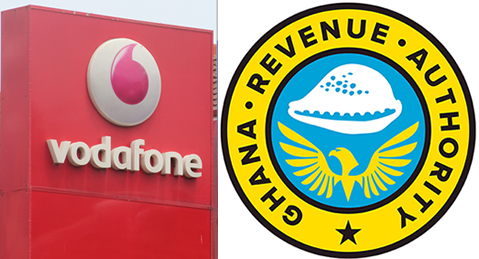Vodafone tax dispute case: GRA fails to turn up in court, judge adjourns to March 8
 The Commercial Division of the High Court in Accra hearing the tax assessment case brought against the Ghana Revenue Authority (GRA) by Vodafone Ghana has adjourned hearing to March 8, 2018.
The Commercial Division of the High Court in Accra hearing the tax assessment case brought against the Ghana Revenue Authority (GRA) by Vodafone Ghana has adjourned hearing to March 8, 2018.
The adjournment was at the instance of the Plaintiff, Vodafone Ghana following the inability of the GRA to be in court on Tuesday, February 6, when the case was called.
The court is expected to hear the motion for the amended writ filled after the substantive case of disputed tax assessments of over GH¢160 million filed by the telecommunications company against the state tax agency when it reconvenes on March 8.
The facts of the case are that Vodafone Plc bought 70 per cent stake in the then Ghana Telecoms for $900 million in July 2008 and since 2009, the company has claimed no profit even though it is said to have been remitting funds to its parent company.
An assessment over the company’s GH¢540 million Turnover for a three-year period is said to have pegged tax liabilities at GH¢162 million and the GRA asked Vodafone to pay 30 per cent of the stated assessment while negotiations continue, as allowed by the tax laws.
Vodafone is said to have declined but rather requested a waiver from the Commissioner-General who by law has discretionary powers in granting such waivers.
The telecoms provider filed a suit in court to compel the Commissioner-General to determine its request for a waiver of the said payment of the 30 per cent of the amount which is to the tune of GH¢49 million.
But even before the substantive case could be heard, Vodafone filed an amendment to its original writ, stating that “Take Notice that this Honourable Court will be moved by counsel for the Applicant/Applicant (“Applicant”) herein for an order granting leave to: vary/modify the reliefs sought in this suit to read as follows: An order of certiorari, bringing up and quashing the decision of the Respondent dated 4th October 2017 refusing the Applicant’s request for a waiver of the payment of the 30 per cent of the disputed assessment pending the objection determination, on the grounds that the decision resulted from an improper exercise of the discretion vested in the Respondent by section 42 (6) of the Revenue Administration Act, 2016 (Act 915) and in contravention of article 296(a) and 9b) of the Constitution, 1992”.
Vodafone had alleged arbitrariness and harassment on the part of GRA, an allegation the GRA has disputed.
“If we destroy businesses, how do we collect taxes?” He asked, adding, “we do not act illegally.”, says Kwasi Bobbie-Ansah, GRA’s Communications Director.
In the substantive case, Vodafone’s contention is that in July 2017, the Transfer Pricing Unit of the GRA conducted a Transfer Pricing audit of the company for the 2012 – 2016 years of assessment. But Vodafone disagreed with the GRA’s use of the Technology Transfer Regulations, 1992 (L.I. 1547) instead of the Transfer Pricing Regulations, 2012 (L.I. 2188,) in the audit exercise, the court document shows.
In a back and forth correspondence between the two, the GRA counteracts Vodafone’s assertions by arguing that after subjecting the company’s transactions to the Technology Transfer Regulation 1992, (L.I. 1547), it established that the transactions do not meet the Arm’s Length Test.
Following several meetings to resolve the matter, the GRA asked Vodafone to submit its grievances in writing. That was done through its consultants, KPMG, the document states.
According to the Writ, Vodafone while waiting for a response from the GRA, it instead received an audit report with a tax assessment of GH¢162,468,361.90 from the Transfer Pricing Unit of the GRA, which demanded that the stated assessment should be paid within 14 days. Vodafone however, objected to the demand.
The writ filed at the Commercial Court in Accra, and lists Vodafone Ghana as Ghana Telecommunications Co. Ltd, states that “the lawyers of the Applicant shall move this Honourable Court praying for an order of certiorari, bringing up and quashing the decision of the Respondent demanding payment of 30 per cent of a disputed tax assessment and for an order of mandamus compelling the Respondent to determine the Applicant’s request for a waiver of said payment.”
By Emmanuel J.K. Arthur
Copyright ©2018 by Creative Imaginations Publicity
All rights reserved. This news item, or any portion thereof may not be reproduced or used in any manner whatsoever without the express written permission of the publisher except for the use of brief quotations in reviews.
